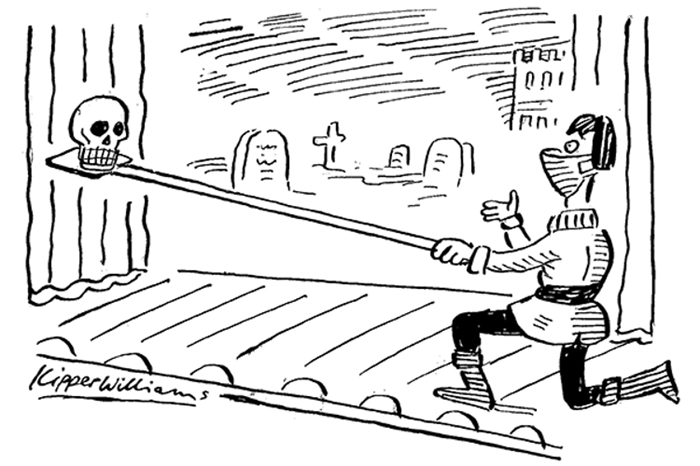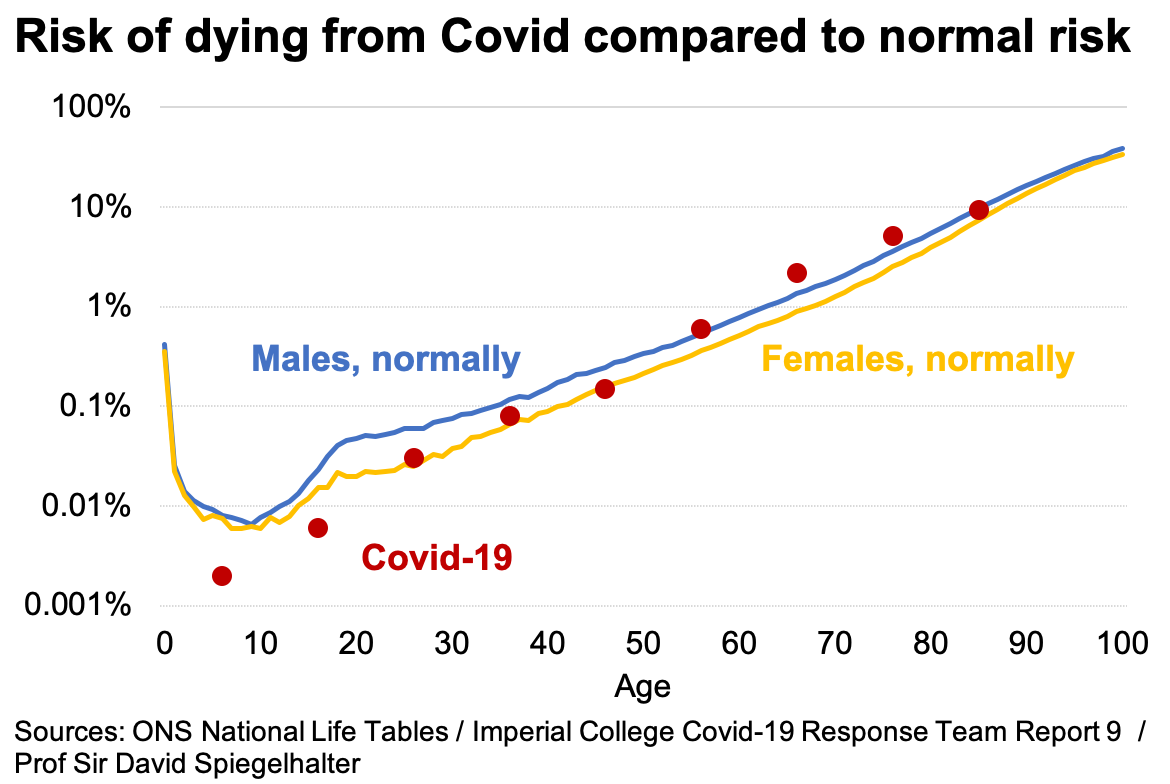The Spectator brings you the latest insight, news and research from the front line. Sign up here to receive this briefing daily by email, and stay abreast of developments both at home and abroad.
News and analysis
- Rishi Sunak is set to announce changes to the furlough scheme this afternoon. Details below.
- Groups of up to six people can meet outside in England from Monday. Meanwhile Scotland has begun to ease its lockdown as people from two different households can now meet.
- The first Covid rehab centre, designed to help patients recovering from the virus, has taken in its first patients.
- ‘More than two additional hours of teaching per week might be needed over a year to compensate for each school week lost to Covid-19’, according to a report from the LSE.
- Hong Kong BNOs will be granted the right to come to the UK on an extended visa regardless of whether they currently hold a BNO passport, if China pushes through the new security law.
Reopening news:
- Premier League football is set to return on 17 June.
- Dentists can resume work in their practices from 8 June.
- The National Trust will reopen 29 sites from 3 June.
- Buses in London will resume front door boarding from tomorrow.
- City AM will return to print on 7 September.

Rishi Sunak starts to roll back furlough scheme
The economic realities of the Covid crisis will be made clearer today, as Chancellor Rishi Sunak is set to start rolling back the furlough scheme at this afternoon’s press conference. Last time he took to the podium he surprised everyone by extending the scheme far more generously than was expected. This evening, he’s all but certain to tell employers they have to foot more of the bill. The question remains: how much? Reports suggest they could be asked to pay between 20 and 25 per cent of furloughed employees’ wages – and National Insurance and pension contributions as well.
Until recent months, the principle of employers paying their employees’ wages was not even questioned. Now, it is under serious scrutiny, as even minor changes to the furlough scheme are guaranteed to mean increases in unemployment. Some 8.4 million people have been furloughed and 2.3 million self-employed workers have applied for government support grants. While some of these people will return to work in the weeks and months ahead, many won’t. A survey from the Institute of Directors today finds that only half of businesses feel financially able to cover 20 per cent of their furloughed staff’s salaries. A quarter of businesses say they can’t afford to contribute anything at all. When they’re asked to do so, it’s inevitable that they’ll make tough decisions about keeping employees on.
The government knows the scheme cannot last forever, with its monthly price tag inching closer to matching the bill for the NHS. Judging correctly when and how to unwind the scheme is imperative for minimising job losses and further economic damage – of which we are seeing more by the day.
** A sponsored message from Facebook **
Do you know a small business in need of extra support?
It’s a challenging time for small businesses in communities across the country. Facebook’s Business Resource Hub offers free tools to help you manage your business, support your customers and employees, and connect with other business owners who are facing similar challenges.
From information on how to bring your business online, to setting up a customer service plan, Facebook’s Business Resource Hub has you covered.
Visit our Business Resource Hub
Fans in the stands

In words
There are serious concerns that the pandemic will plunge the Covid-19 generation into a dark age of declining social mobility.
– Professor Lee Elliot Major of the LSE, co-author of a new study on Covid-19 and social mobility.
A nation conflicted
When lockdown began, there was overwhelming support for it. And Britons didn’t just agree with the government’s message to stay home, they obeyed it too. What do they think now? New polling of more than 90,000 adults by University College London shows a drop in the number of people sticking strictly to the lockdown rules from 70 per cent two weeks ago to just over 50 per cent today. Yet concerns about the virus linger: polling by King’s College London earlier this week showed 54 per cent remained concerned that the government is relaxing lockdown measures too fast, compared with the 27 per cent who thought the government had more or less got it right. With reception, Year One and Year Six classes set to return to school next week, 56 per cent polled were worried about sending their child back to school. It may be that the public is ready to leave their homes once again – but to take only the most tentative steps outside.
Global news
- The Boston Marathon has been cancelled for the first time in its 124-year history. The race will still be held virtually, with participants encouraged to run 26.2 miles and provide proof of their time.
- More than 500 schools have closed in South Korea just days after reopening due to an outbreak of Covid-19 infections.
- Sporting events will be allowed to take place in Texas from today with crowds limited to 25 per cent of capacity.
- Croatia has reopened its borders to citizens of ten EU countries.
- Protesters in Minneapolis have set a police station on fire over the death of George Floyd, after footage emerged of a police officer kneeling on his neck.
Our latest podcast
Research
Does a positive Covid test mean you are contagious? Not necessarily, according to a new research paper from Singapore’s National Centre for Infectious Diseases and its Academy of Medicine. The report finds that ‘the infectiousness’ of Covid-19 ‘diminishes after seven to ten days’, which suggests that a positive test ‘does not equate to infectiousness or viable virus’. In other words, there comes a point where a person still has Covid-19, but is not a threat to others. The researchers claim this should lead to ‘revised discharge criteria’, as some people in hospital or self-isolating pose less of a threat than previously thought.
Datawatch

Coronomics
- More than 40 million Americans have filed for unemployment benefits since lockdown began.
- Just 197 premium, luxury and sports cars were produced in the UK in April, compared with more than 70,000 in April last year. The loss of production could cost the car industry £12.5 billion.
- UK lenders have approved around 1.5 million payment holidays on personal loans and credit cards since the start of the Covid-19 outbreak.
- Nationwide’s pre-tax profits fell by 44 per cent to £466 million.
- Renault is to cut 15,000 jobs worldwide in a €2 billion cost-reduction plan prompted by the pandemic. ZF Friedrichshafen, the German car parts supplier, will also cut 15,000 jobs.
- Sweden’s GDP rose by 0.1 per cent in the first quarter of the year while Denmark’s shrank by 2.1 per cent.
- Some 27 per cent of UK adults undertook DIY projects in the weeks leading up to 13 May, according to Co-op Insurance.
More from The Spectator
Boris Johnson isn’t fit to lead – Alex Massie
Escaping the dragon: the government’s new approach to China – James Forsyth
The way ‘Covid deaths’ are being counted is a national scandal – Dr John Lee
Norway health chief: lockdown was not needed to tame Covid – Fraser Nelson
Why has coronavirus fled London? – Matthew Parris
Self-isolation tips from Spectator Life
8 back-to-school movies to watch this weekend – Stephen Arnell
The best bakeries that deliver to your door – Olivia Potts
Pineapple granita recipe – Olivia Potts







Comments